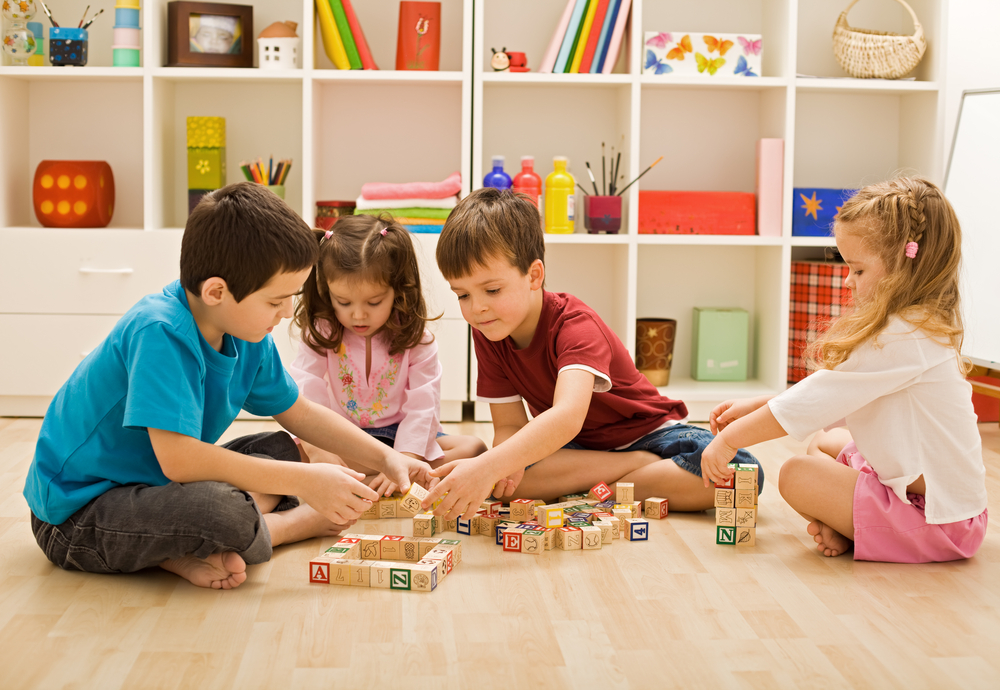
Everyone has fond memories of a childhood toy or game. However, toys provide far more than just fun for children. They help children develop physical, cognitive, and social skills as well as some hard skills that will be useful for them for the rest of their lives. Here are 5 ways in which toys help children's development.
- Toys can help children develop their motor skills. A lot of toys involve a degree of precision, whether that’s building with blocks or lincoln logs, dressing baby dolls or Barbies, which involves some problem solving, or even just setting up for play, building a pillow fort, a race track for Hot Wheels, a setting to play house in. If they’re playing with a ball, a frisbee, or a jump rope, they learn more hand-eye and eye-foot coordination, as well as balance. All of these forms of play help children fine-tune their motor skills and improve dexterity. They learn how to move slowly when necessary, steadying their hands to keep from knocking things over. They learn precision and how to measure how much strength they need to perform an action. And over time, they improve and build on their skillsets.
- Toys inspire creativity. Whether playing with toys meant for building or sculpting or with a pile of stuffed animals, children are going to lean on their creativity for play. World-building and storytelling are naturally engrained in their psyches, and by giving them the toys and freedom for free play, you help them learn how to stretch and further develop those abilities. At a developmental age, they might mostly use modeling clay just for its sensory nature, but as they grow, they’ll learn to mold increasingly intricate things. Likewise, their storytelling will grow more complex as they go on. Additionally, creativity is connected to boosted confidence and can help one have a better grasp of one’s feelings and emotions.
- Creativity, in turn, encourages problem-solving and the forming of new ideas. The desire to build a taller tower than the last requires a change in strategy. Children will experiment with different structures until they find something effective, such as building a wider base. With most toys and games, children will learn to understand space and dimensions and how they fit into the space around them. Puzzles require more hands-on problem-solving skills through trial and error and basic logic while other games, like role-play and storytelling, require more abstract problem-solving skills and open-mindedness. Most kinds of toys will push children to develop cognitive skills in a safe setting by pushing them to try new things, ask questions, and learn from failed attempts.
- Toys can help develop social skills. For one, a lot of play will involve other children, whether siblings, neighbors, or classmates. Children must learn to interact with each other during play and how to express their needs and feelings. This will help them learn the give and take of social relationships. Concepts like sharing, expressing frustration, or communicating new ideas for a game are learned over toys. Toys also allow children to create their own make-believe social interactions between their dolls, stuffed animals, action figures, etc. They develop relationships between their characters and place them in situations, whether realistic or fantastical, that help children better grapple with and understand the real world around them. Whether there are parent plushies and children plushies or all the dolls are ready for “school,” children are mimicking the real world and learning how social interactions can work.
- Finally, toys can help with language skills and education. Of course, as stated above, toys can help with a lot of physical, cognitive, and social development, but they can also help develop hard skills by teaching reading and basic arithmetic, as well as color recognition, spelling, etc. Whether children are checking out their customers in their play “store” and adding up the total or playing with letter magnets on the fridge, they’re putting what knowledge they have into practice and pushing themselves to add to it. Toys will spark curiosity, as children are ever wanting to better understand the world around them, and the right toys can specifically spark an interest in educational subjects, among other things.
It’s important to nurture children’s natural curiosity while they’re young, providing them with toys and the freedom to have free play time. Over time, you’ll see what kind of impact the toys can have on a child’s mind and body. They’ll grow in confidence and develop basic logic, critical thinking, problem-solving and social interaction as well as improve in dexterity and crave more learning.
